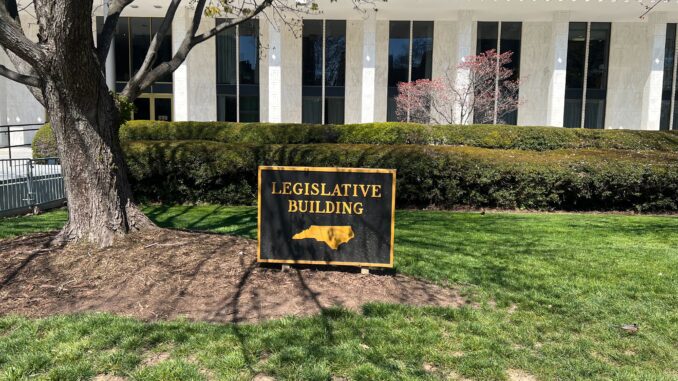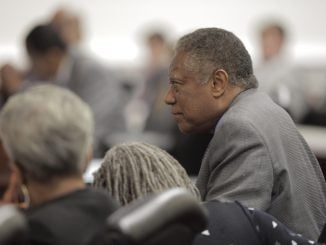
RALEIGH — A bill filed in the North Carolina House would alter the way academic standards are created and maintained by creating a new advisory commission.
House Bill 756, titled “Standards Advisory Commission,” was filed by primary sponsors Reps. John Torbett (R-Gaston), Jeff Zenger (R-Forsyth), and Hugh Blackwell (R-Burke).
The bill, filed on April 19, already received a favorable report from the House K-12 Committee during its April 25 meeting and was referred to the House Operations and Rules Committee.
The bill amends the statutes related to the N.C. State Board of Education’s powers in developing academic standards and the course of study for K-12 students and creates a Standard Course of Study Advisory Commission that will recommend academic standards to the board.
Under current law, the N.C. Department of Public Instruction (NCDPI) is the body responsible for recommending standards for the state’s Standard Course of Study. After receiving NCDPI’s recommendations, the state board either rejects or adopts the proposals.
Under the proposed legislation, the commission would consist of the superintendent of public instruction and 16 members appointed by the General Assembly; 8 recommended by the President Pro Tempore of the Senate and 8 recommended by the Speaker of the House of Representatives. The governor would have no appointee on the commission.
The General Assembly’s appointments would be subject to various categorical requirements.
Additional nonvoting members would include the President of the North Carolina Community College System, the President of The University of North Carolina, and the President of the North Carolina Chamber.
Members of the Commission would serve four-year terms beginning on July 1 and no member may serve more than 8 consecutive years. Vacancies would be filled by the General Assembly and the Commission would be located administratively within NCDPI but would be independent of that agency.
The commission’s duties would include surveying parents, teachers, and the public to examine the usefulness of standards and seek academic priorities.
A review of standards would be conducted to assure they are “rigorous, specific, sequenced, clear, focused, and measurable” and that high school content aligns with postsecondary requirements for admission and employment in a “21st Century economy.”
Also among the commission’s duties would be to develop “support materials to be made available to teachers and parents upon approval by the SBE.”
The commission will be required to report to the Joint Legislative Education Oversight Committee (JLEOC) and the state board of education annually beginning Dec. 1, 2024.
Under the bill, the state board of education would be required to either reject or adopt the commission’s recommendations. Should the recommendations be rejected, the board would have to state specific reasons so the commission may make changes and resubmit its proposal.
If the original and amended recommendation are both rejected, the state board of education could develop and adopt its own standards, however, the board’s standards would be subject to a legislative review and would have to get around any bill filed barring implementation of the board’s proposed standards.
The science standards and healthful living standards currently being revised will likely be resolved and not be impacted if the bill becomes law.
Last year, adoption of new social studies standards caused controversy with the inclusion of ideological concepts and elements of Critical Race Theory, social justice themes, gender identity ideology, and “systemic racism.”
Board member Jill Camnitz, a Gov. Roy Cooper appointee who led the committee altering the social studies standards, said that the guiding principle of “equity” embedded in the board’s strategic plan were applied to the proposed social studies revisions.
The board’s principal adviser on the social studies revisions, Matt Bristow-Smith, called the changes “the hard truths of our American narrative.”
Lt. Gov. Mark Robinson, who sits on the state board of education pushed back on the “overall tone” of the revisions and clashed with member James Ford on the topic of “systemic racism.”
“I think they are politically charged. I think they are divisive, and I think they, quite frankly, smack of a lot of leftist dogma,” Robinson said during the January 2021 state board of education meeting.
Robinson wasn’t the only frustrated board member. A little over a year after the passage of the revised social studies standards, board member Todd Chasteen resigned citing the board’s “trajectory towards activism.”
In his resignation letter, Chasteen directly cited the standards.
“In full transparency, in February when the board passed Social Studies standards by a slim majority, standards that many of us concluded, and thousands of parents agreed, were unproductive, regressive and unhelpful to the students of this wonderful state, it became more difficult to see where I could add value,” Chasteen wrote.



